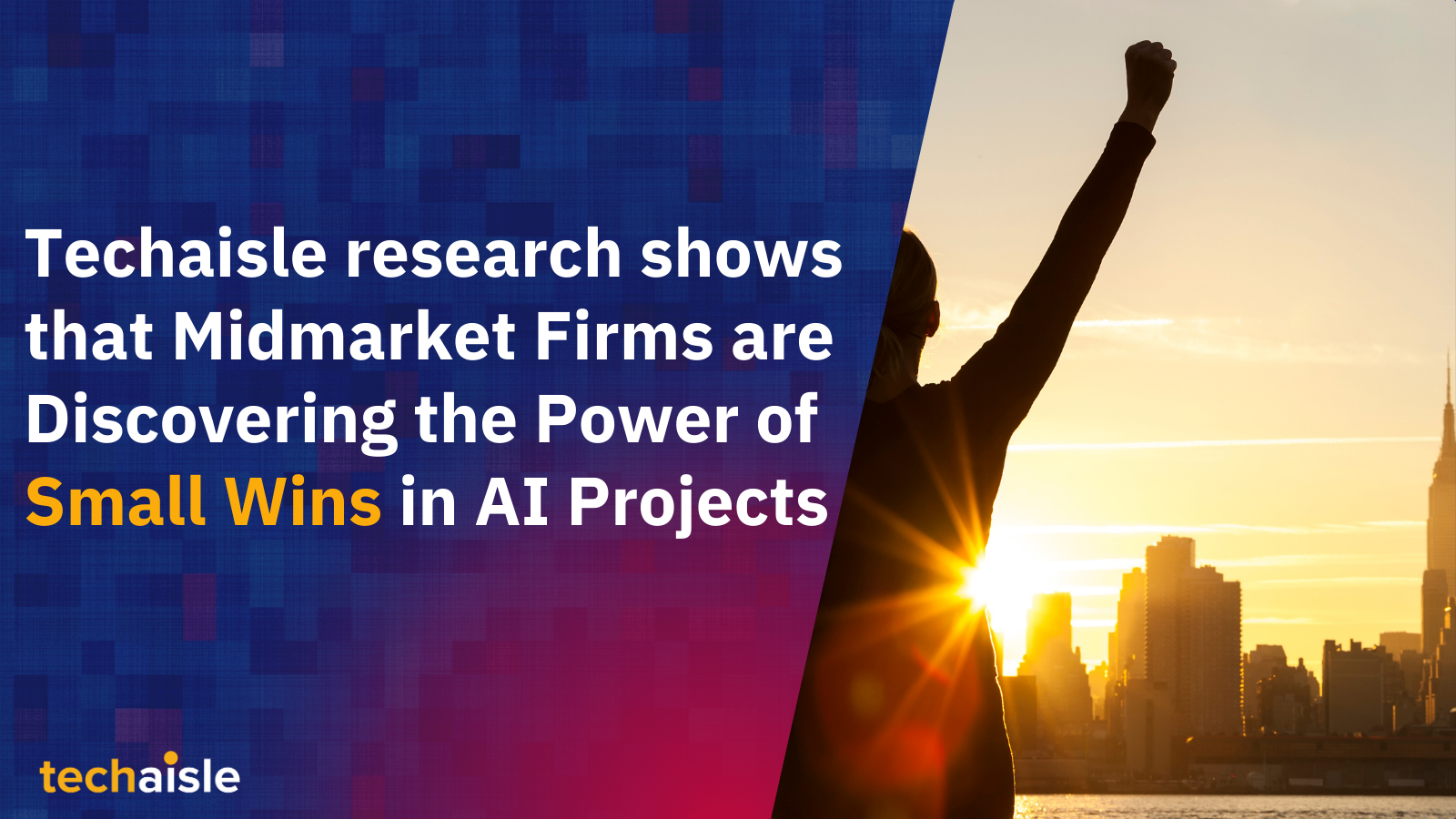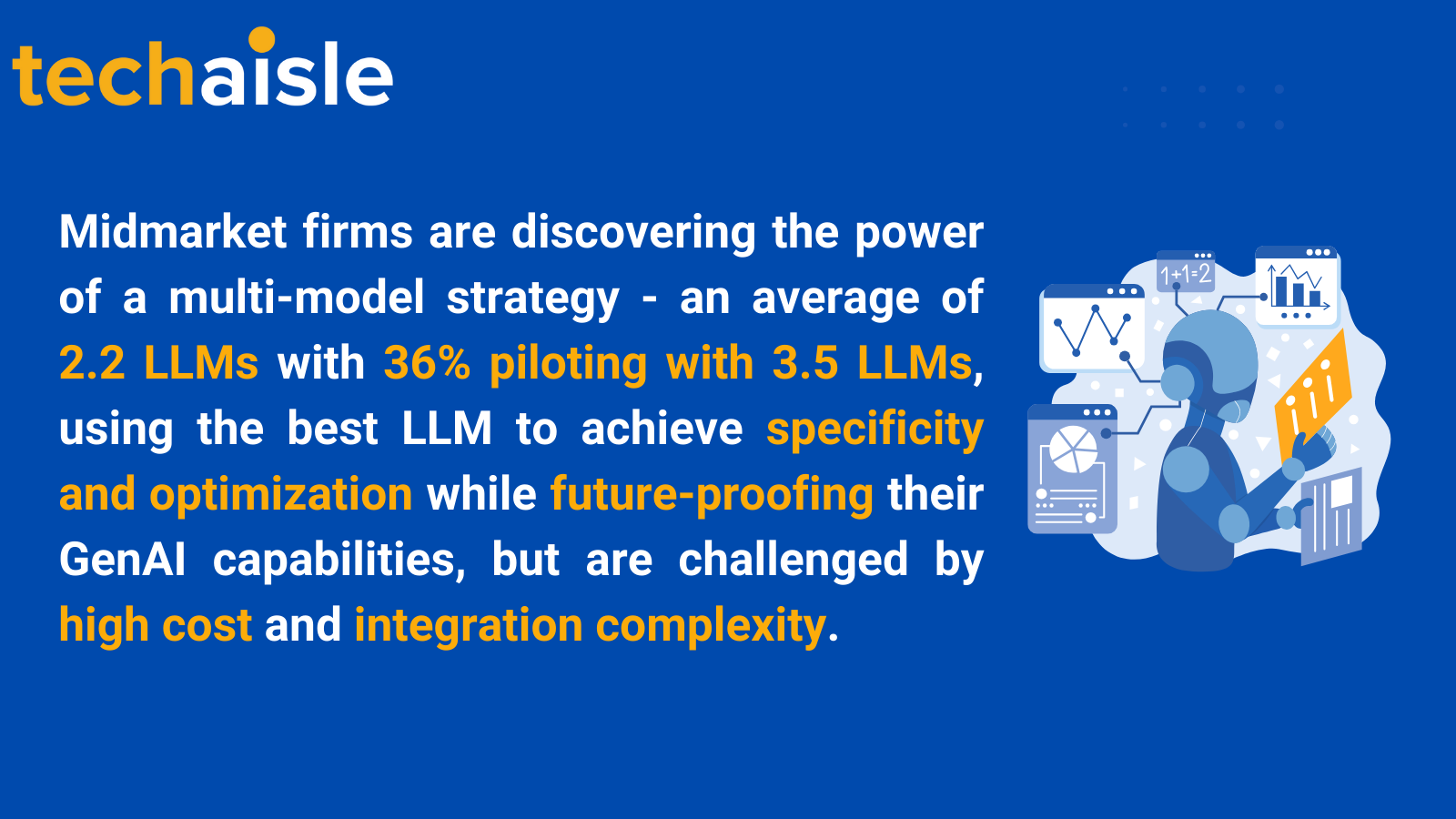Generative AI is revolutionizing how businesses operate, offering unprecedented opportunities for innovation and efficiency. As per Techaisle’s research of 2400 businesses, 94% are expected to use GenAI within the next 12 months. Amazon Web Services (AWS) is at the forefront of this transformation, guiding business leaders through the adoption and implementation of generative AI technologies. AWS emphasizes the importance of understanding the potential of generative AI and identifying relevant use cases that can drive significant business value. By leveraging tools such as Amazon Bedrock, AWS Trainium, and AWS Inferentia, businesses can build and scale generative AI applications tailored to their specific needs. These tools provide the necessary infrastructure and performance to handle large-scale AI workloads, ensuring businesses can achieve their goals effectively. Moreover, AWS highlights the critical role of high-quality data in the success of generative AI projects. A robust data strategy, encompassing data versioning, lineage, and governance, is essential for maintaining data quality and consistency, enhancing model performance and accuracy. Additionally, AWS advocates responsible AI development, emphasizing the need for ethical considerations and risk management. Businesses can establish clear guidelines and safeguards to ensure their AI initiatives are innovative and responsible. Real-world success stories, such as those of Adidas and Merck, demonstrate the tangible benefits of generative AI, from personalized customer experiences to improved manufacturing processes. As businesses continue to explore and implement generative AI, they must prioritize adaptability, continuous learning, and a commitment to ethical practices to fully harness this technology's transformative power. AWS is taking a pivotal role in guiding businesses through the adoption and implementation of generative AI by encouraging business leaders to consider the possibilities if limitations were removed.
AWS’ Roadmap for Generative AI Success
Despite widespread GenAI adoption plans, Techaisle found that 50% of businesses struggle to define an AI-first strategy. Most businesses, from small to large corporations, struggle to define specific GenAI implementation strategies. This is particularly evident among small businesses (81%), midmarket firms (45%), and enterprises (41%). As Tom Godden, AWS Enterprise Strategist, said, “The question on every CEO’s mind is ‘What is our generative AI strategy?” To facilitate this journey, AWS outlines a clear roadmap encompassing several key stages: Learn, Build, Establish, Lead, and Act.
In the Learn phase, AWS recommends understanding the possibilities of generative AI and identifying relevant use cases. They offer resources like the AI Use Case Explorer, which provides practical guidance and real-world examples of successful implementations. Moving to the Build stage, AWS stresses the importance of effectively choosing the right tools and scaling. They provide a range of infrastructure and tools, including Amazon Bedrock, AWS Trainium and AWS Inferentia, Amazon EC2 UltraClusters, and SageMaker. These tools help businesses balance accuracy, performance, and cost while developing and scaling generative AI applications.
The Establish phase centers around data, a crucial component for successful generative AI implementation. AWS highlights the need for a robust data strategy that includes data versioning, documentation, lineage, cleaning, collection, annotation, and ontology. This ensures data quality and consistency, which is essential for optimal model training. In the Lead stage, AWS emphasizes the importance of humanizing work and using generative AI to empower employees rather than replace them. They recommend redesigning workflows to leverage AI effectively, adopting successful AI governance models, and preparing the workforce for new roles through upskilling and reskilling.
Finally, the Act phase focuses on building and implementing a responsible AI program to ensure generative AI's ethical and safe use. AWS advises proactively addressing potential risks and challenges, establishing clear risk assessment frameworks, and implementing controls and safeguards to prevent misuse. They also emphasize the importance of providing training and resources to ensure security and compliance teams are confident in the organization's AI practices.
AWS provides a comprehensive approach to guiding businesses through the adoption and implementation of generative AI. AWS helps leaders navigate this transformative technology and unlock its immense potential by offering a clear framework, practical tools, and real-world examples.
Amazon Bedrock: A Comprehensive Platform for Generative AI
Building upon this foundation, Amazon Bedrock emerges as a pivotal tool for businesses seeking to harness the transformative power of generative AI. By providing a curated selection of foundation models and simplifying their implementation, Bedrock empowers organizations to experiment, iterate, and scale their AI initiatives rapidly.

















